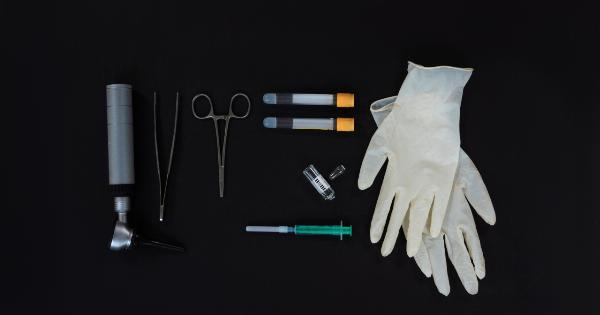Plastic surgery is a medical specialty that involves the restoration, reconstruction, or alteration of the human body. Plastic surgeons perform a wide range of procedures, both reconstructive and cosmetic.
While certain cosmetic procedures may not be covered by health insurance, others are deemed medically necessary and may be covered. Here is a guide to plastic surgery procedures covered by health insurance.
Breast Reduction
Women who experience breast hypertrophy may seek breast reduction surgery. This condition results in the enlargement of the breast tissue, causing discomfort and pain.
Symptoms may include shoulder and neck pain, skin irritation, and difficulty exercising. Breast reduction surgery can alleviate these symptoms and improve a woman’s overall quality of life. Most insurance policies cover breast reduction surgery as long as it is deemed medically necessary.
Breast Reconstruction
Breast reconstruction is often performed on women who have undergone a mastectomy. This surgery reconstructs the breast using either an implant or the patient’s own tissue.
Breast reconstruction can help women regain their sense of confidence and femininity after cancer treatment. Most insurance policies cover breast reconstruction as part of the treatment of breast cancer.
Rhinoplasty
Rhinoplasty, or nose surgery, is a cosmetic procedure that alters the appearance of the nose. While some individuals seek rhinoplasty for aesthetic reasons, others require the procedure to correct functional issues.
Deviated septums, which can cause breathing problems, may be corrected during rhinoplasty. Most insurance policies do not cover rhinoplasty for cosmetic reasons, but may cover the surgery if it is deemed medically necessary.
Abdominoplasty
Abdominoplasty, commonly known as a tummy tuck, is a cosmetic procedure that removes excess skin and fat from the abdomen.
While the procedure can improve a patient’s appearance, it may also help alleviate medical issues such as back pain or skin irritation. Most insurance policies do not cover abdominoplasty for cosmetic reasons, but may approve the procedure if the patient meets certain medical criteria.
Blepharoplasty
Blepharoplasty, or eyelid surgery, is a cosmetic procedure that corrects drooping eyelids and bags under the eyes. While the procedure can improve a patient’s appearance, it can also correct vision problems caused by drooping eyelids.
If the patient’s drooping eyelids are impairing their vision, insurance may cover the cost of the procedure.
Ear Surgery
Ear surgery, or otoplasty, is a cosmetic procedure that can reshape the ears and bring them closer to the head.
While the procedure is often sought after by those who are self-conscious about the appearance of their ears, it can also be used to correct medical issues such as hearing loss. Most insurance policies do not cover otoplasty for cosmetic reasons, but may approve the procedure if it is deemed medically necessary.
Mastopexy
Mastopexy, or breast lift, is a cosmetic procedure that lifts and reshapes sagging breasts.
While some individuals may seek the procedure to improve their appearance, others may require the surgery to alleviate physical discomfort caused by sagging breasts. Most insurance policies do not cover mastopexy for cosmetic reasons, but may cover the procedure if it is deemed medically necessary.
Liposuction
Liposuction is a cosmetic procedure that removes excess fat from the body. While the procedure can improve a patient’s appearance and confidence, it is not considered medically necessary in most cases.
As a result, most insurance policies do not cover the cost of liposuction.
Facelift
A facelift is a cosmetic procedure that can help reduce signs of aging in the face and neck. While the procedure can improve a patient’s appearance, it is not considered medically necessary.
As a result, most insurance policies do not cover the cost of a facelift.
Cleft Lip and Palate Repair
Cleft lip and palate repair is a reconstructive surgical procedure that involves repairing the tissues of the lip and palate that have not joined properly during fetal development.
These procedures are considered medically necessary, and most insurance policies cover the cost of the procedure.


























